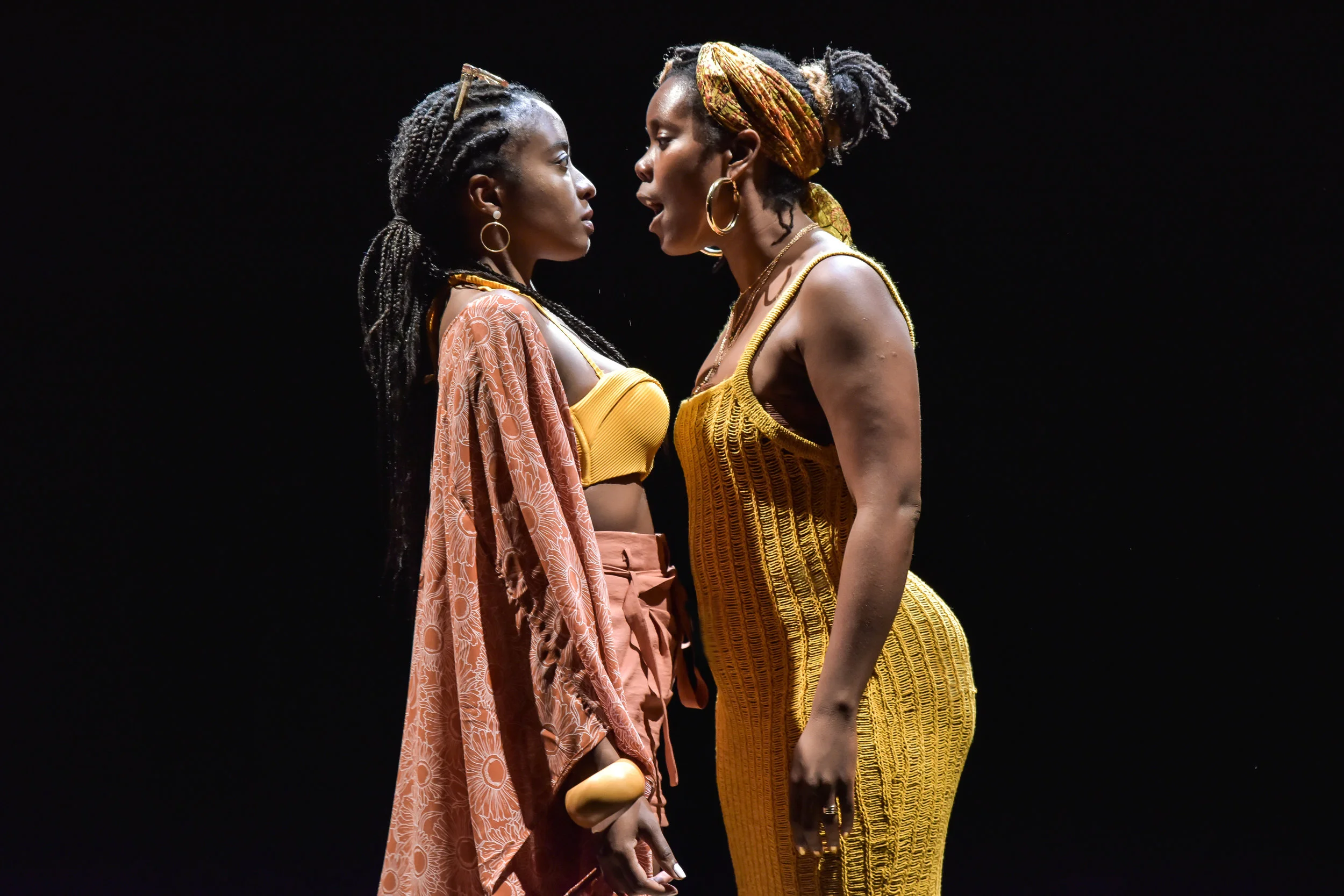Macbeth: Queen of Scotland at the Royal Exchange
For centuries scholars have dissected the power of female characters in Shakespeare’s Macbeth. Now, in this new adaptation by Christopher Haydon, Macbeth herself questions the same.
Male Macbeth is traditionally quite two-dimensional, too often falling into the trap of tyranny for tyranny's sake. On the contrary, Lucy Ellinson explores areas of the title role that few have uncovered. Her Macbeth is sensitive, sassy and, ultimately, she implores our sympathy. In several striking soliloquies, Ellinson commands the totally bare stage with proud physical presence and a delicate grasp of language, capturing our attention and, to an extent, our affection.
Alongside her royal husband/wife, Lady Macbeth doesn't carry quite the same level of nuance. Ony Uhiara plays a fierce queen, one who rules by sheer force and volume. Uhiara balances Ellinson's Macbeth well, but lacks the whisper of manipulation so tightly associated with the iconic role. She is "unsexed" in a way that demands note over and above the decision to cast a female lead.
After a string of intimate two-handers balancing out corporate scenes at court, the first act culminates in the production's most memorable moment. This climactic scene is applauded for its innovation, visual design and impeccable performances. The bare stage is utterly transformed and, with it, so is Queen Macbeth. Set in a hedonistic explosion of colour and texture, Macbeth is confronted with the ghost of her guilt. Here, Ellinson truly excels. Rather than sinking in despair, we watch her inner battle play outwardly in a rather Hamlet-esque outburst. Madness, fear, laughter, self-control, and a chilling element of a rabbit caught in the headlights, all meet with some magical slights of hand.
Haydon's production is very much a play of two halves: where the first half openly explores new styles and designs, the second is somewhat more rigidly tied to the restraints of the script and stage. Set in the round, the choppy, stop-start battle scenes require quite a tiresome run of entrances and exits. The cast struggle to gain momentum as they run on and off stage, carrying a rather sparse representation of Burnham Wood.
Having said that, the second act hosts a second meeting with the prophetic weird sisters: a scene that toes a fascinating line between fate and blame. Powered by childish plastic props, seemingly stolen from audience members (indeed, there were several enjoyable nods to Renaissance audience engagement throughout), the witches turn Macbeth on herself. She becomes led, not by fate, but by her own flaws. Swallowing each prophesy and choking on every word, Macbeth's future comes from within. This shift from the original script exemplifies the subtle refiguring of this classic play that we see throughout.
Each female cast member in particular is charged with reimagining her role. Duncan is a Queen, not a King; the drunken porter is a bawdy Northern lass; and the weird sisters are indeed gloriously weird. Their erratic movements are both sinister and comedic in their sheer strangeness. Starkly contrasting their reserved omnipresence at court, the trio maintain an eerie sense of power throughout.
Even in the short-lived role of Fleance, Ayanda (Yandass) Ndlovu is wonderfully bouncy and balletic, which utterly endears us to this otherwise little-developed character. Alongside her father Banquo, played with comforting ease by Theo Ogundipe, the pair portray the most heartfelt and life-affirming relationship in the show.
Haydon's Macbeth is a carefully crafted production. Emanating from Ellinson's position at its centre, the play refigures several assumptions and expectations that come by default with a 400-year old script. Yet, these shifts in expectation are intricate and considered. But for the occasional reference to ‘she’, ‘her’, the ’queen’, this production brings Shakespeare’s exact words to life. As such, many of the cast's performances are aptly classical. Haydon's company have not attempted to rewrite Macbeth in a crudely feminist or "trending" mould - which I am particularly thankful for. Instead, we are presented with a play in which gender is almost irrelevant: it is an aspect of a character, not a defining feature. It is not her femininity but her strength and humanity that makes Ellinson’s Macbeth unavoidably likeable.
Macbeth plays at Manchester’s Royal Exchange Theatre until 19th October. For tickets, visit the Royal Exchange website.
Photo: Johan Persson
For another gendered perspective on Macbeth, check out our review of OthelloMacbeth at HOME, MCR.





